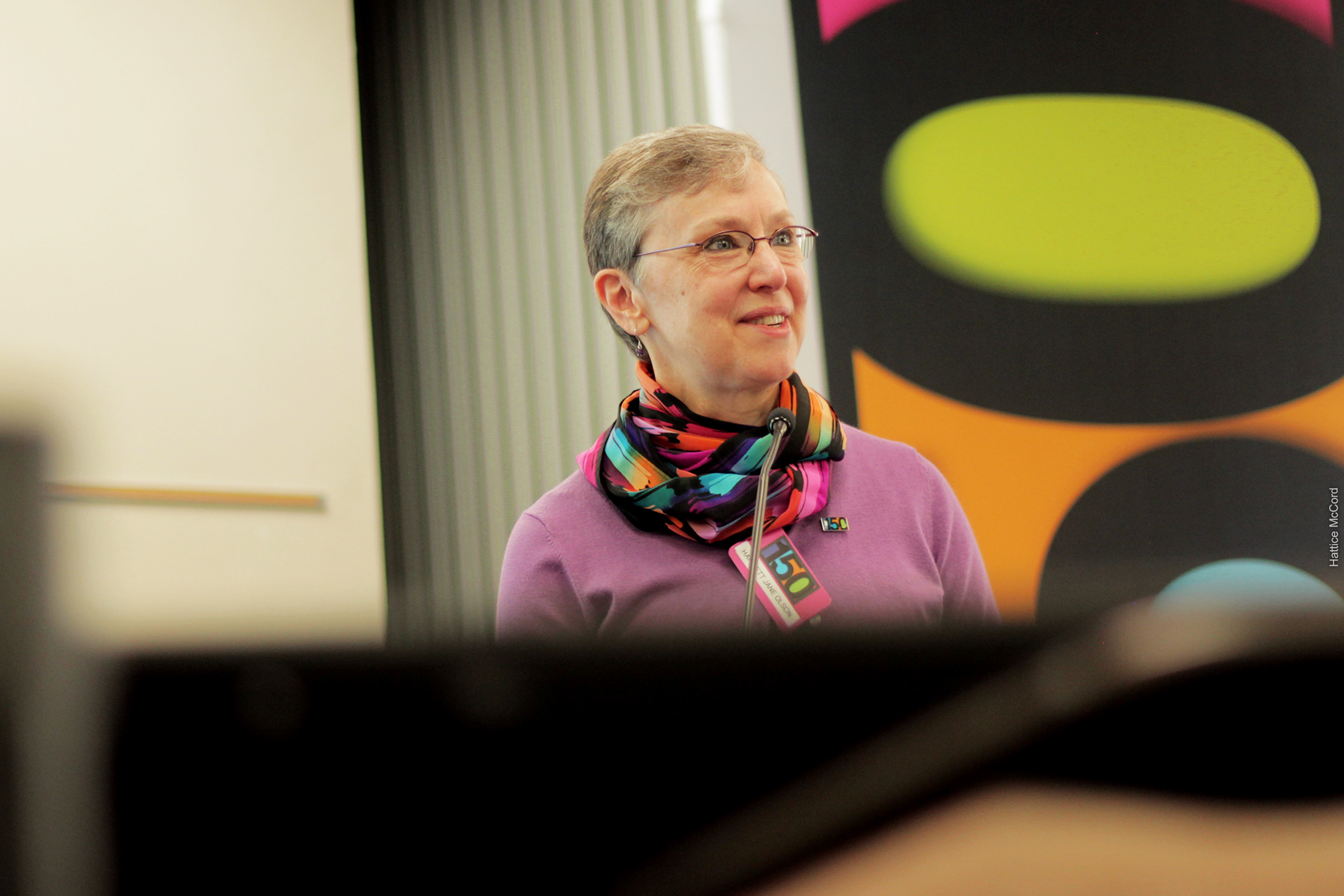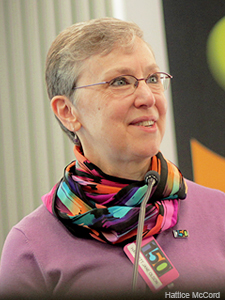
Latest News
Jan./Feb. response: Responsively Yours
Signs of Blessing
by Harriett Jane Olson

It’s quite common for people to say that God is a God of order. While I’m sure that there is truth to this, I’ve been wondering recently if we take this too far (or if I take this too far). God is about more than “order.” Think about the happy mess that happens when people pull out their crafting supplies. While there is order in it (even if I can’t see it) there is also a lot of spontaneity, profusion and possibility. This is not the orderly distribution of materials that I remember from my grade school art classes with precut forms and exemplar results. This is openness to inspiration and to fun and to something new. I don’t want to be the person thinking “I wish we had put something on the tables first; this will be hard to clean up” rather than enjoying the moment!
While this is a lighthearted example, I think about this when I think about God as Creator, constantly seeking the creatures’ good. God’s project is to orient the creation to blessing, toward wholeness, and toward holiness. And as the gospel writer reminds us, Christ came that we might have life and have it more abundantly (John 10:10). We are stewards of what God has entrusted to us, so we take care, but we need not be stingy about blessings. Each of us has plenty of opportunity to face challenges, to practice disciplines that orient us to God’s grace, and to exercise the tools of order, so that we work with others with clarity and a minimum of friction.
We should call on all our skills that tend toward order to make room for abundance. Over and over again we see abundant results come from organized effort and openness to the messiness of change. We long for abundant time for laughter, or tears, or both, as needed. Abundant reminders of God’s love for us. Abundant opportunities to represent God’s love to others—especially to others who believe themselves to be (or who have been told or shown that they are) unloved or unlovely.
One of the symbols that is often used for faith is the mustard seed, which Jesus spoke about. He noted that even though it is very small, it grows into a great tree. I remember how surprised I was when I noticed that Jesus extended the metaphor. Not only did the mustard seed grow a tree of great size, but also “all the birds of the air find rest in its branches.” This doesn’t strike me as an observation based on order. This gardener is not described as having a particular vocation to protect or care for birds. Presumably, the seed was planted to yield mustard, fruit in its season. But, as a demonstration of abundance, it also provides rest for unintended beneficiaries—blessings overflowing. The birds are part of life in the garden. This is a parable of cultivated and uncultivated fruits, a symbol of abundance.
So as we think about this new year, about our responsibilities and the possibilities of what may come, even through pain in our society and in our denomination, I pray that we will look for signs of abundance, signs of blessing, signs of new life—even messy, jumbled, unsorted new life that might surprise us with a glimpse of God’s good pleasure.
Harriett Jane Olson
General Secretary
United Women in Faith
holson@uwfaith.org

